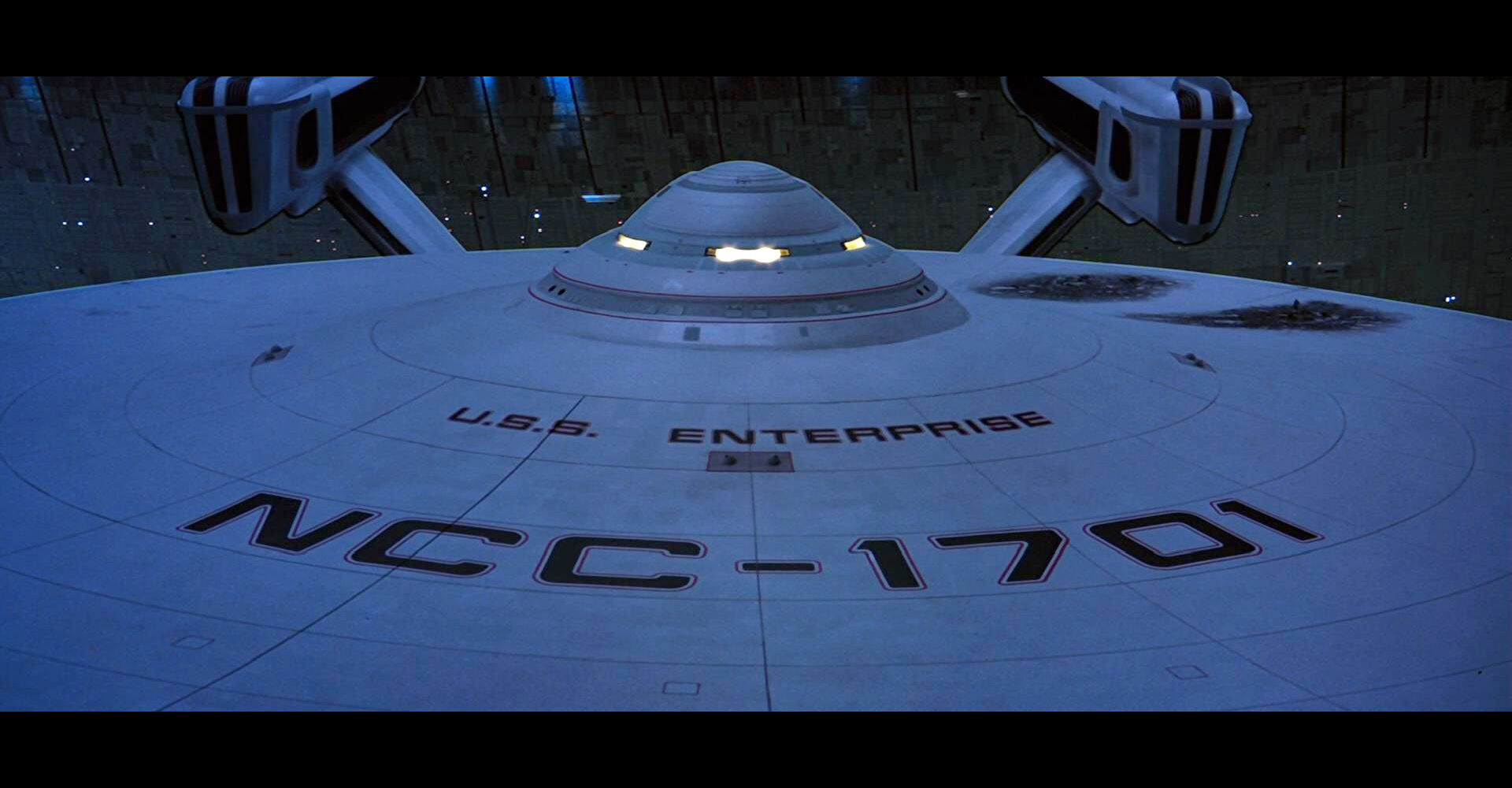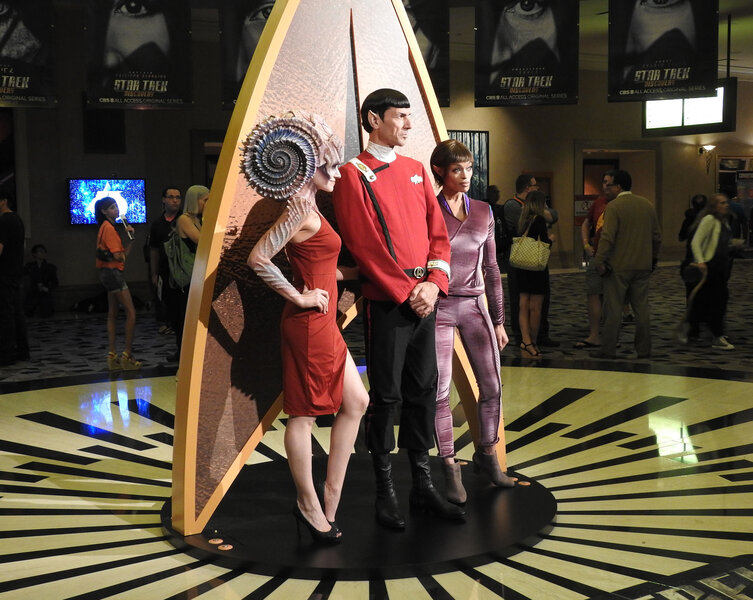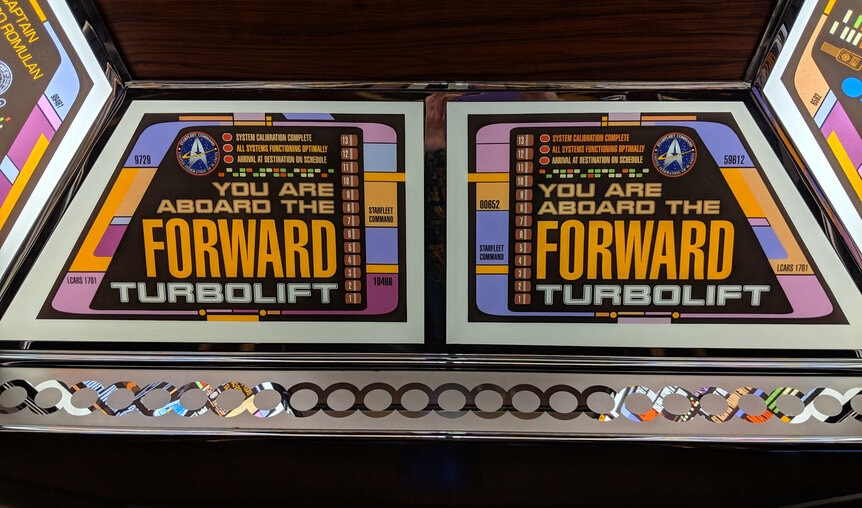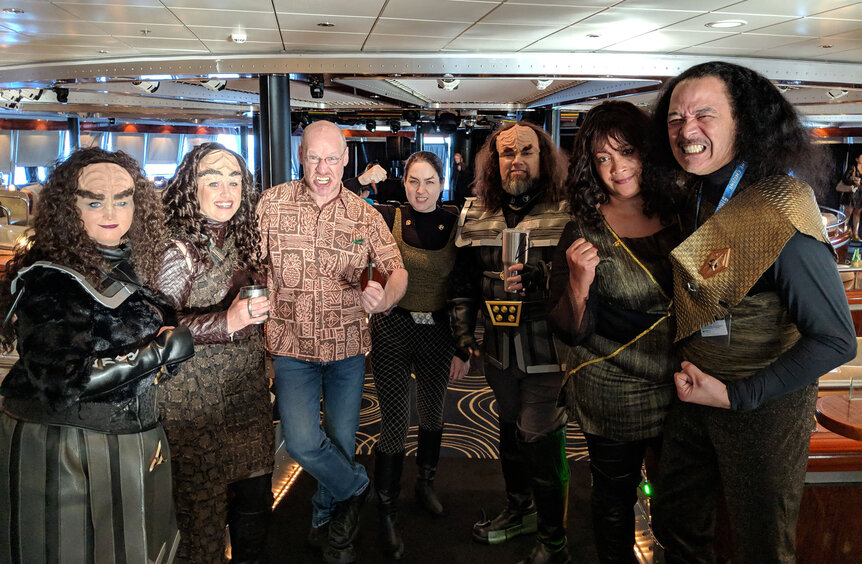Create a free profile to get unlimited access to exclusive videos, sweepstakes, and more!
Love what you love. Let others love what they love.

I am a science fiction fan. I always have been, for as far back as I can remember. I'm not quite old enough to have watched the Star Trek original series when it first aired, but I caught it plenty in reruns as a kid. I watched The Next Generation in grad school (in fact, the first and last episodes very neatly bookended my time at UVa), as well as all the other series as my own life and career moved on.
In high school in the 1970s and '80s, being a sci-fi nerd didn't have quite the widespread support it has today. I never got bullied or anything like that, but my friends and I definitely were not part of the cool crowd (I imagine being in the marching band probably didn't advance that agenda either).
In my own head, I enjoyed the self-imposed ostracism. It made me feel better than the crowd, more important.
I strongly suspect I wouldn't like high school-me very much today. He was an arrogant jerk. But then, I've grown up a lot since then.
As it's supposed to, growing up also gave me perspective; I've been on both sides of that attitude now. I hope I'm a lot less arrogant now, and far more accepting of other people and their own internal dynamics.
It's also helped me understand something that is actually critically important in fandom, Trek or otherwise: People like different things for different reasons. I liked Trek when I was a kid because I liked science. But some years later I gave a talk on the science of Trek at a small con, and was shocked when nearly the entire audience didn't know much science at all. I was baffled; why did they like Trek then?
To now-me, the answer is obvious. A million reasons. The friendships. The sense of camaraderie, the exploration, the stories, the hope, the acceptance of others, the sense of honor, the empathy. Trek has a lot of on-ramps.
That's obvious to me now, but wasn't so much at that time. Like I said, I've grown up a lot.
I recently had a couple of lessons in all this, reminders of what it means to be a fan. And what it shouldn't mean.
When Discovery came out, a lot of people were excited. I was one of them. New Trek! Finally! I am not going to do a review here, but I'll say that despite its flaws, I really like it, and I'm really looking forward to the second season (in fact I recently rewatched the first season and liked it even more than I did the first time).
However, not everyone liked it. There's always nerdgassing* when a show has a spinoff or something changes; just look at the bile and vitriol spewed when we get a new Doctor in Doctor Who.
Trek is not spared this. A lot of people talked about how they didn't like that it was prequel. They didn't like it wasn't on Enterprise. They didn't like this or that. That's all fine, as everyone is entitled to their own taste.
But it becomes a far more serious problem when these people want to declare that others shouldn't watch it because of that. That's called gatekeeping — they are standing in front of the only way in, stating None Shall Pass — and it's the antithesis of fandom. I need not go into details because my colleague here at SYFY Swapna Krishna already did a fine job covering this.
Still, I do have something else I want to point out about gatekeeping. I was recently on the Star Trek Cruise, which was a ridiculous amount of fun. I went last year too, invited as a speaker, and talking about astronomy to a packed room of a couple of hundred Trek nerds is, simply, a joy. But the rest of the cruise was wonderful as well; an entire ship filled with a couple of thousand fans was lovely and energizing.
On the topside deck, the big one open to the outside that has a pool and bar and other such amenities, there was also a big cube with TV screens on four sides (called the Borg Cube, of course). It continuously showed lots of different Trek episodes, outtakes, and the like. One afternoon, I sat poolside and watched an episode of the 1970s animated series.
It was a slice of nostalgia for me. I loved it when it originally aired, and still found myself enjoying it for the wistful memories ... but I found a lot of it was a bit, well, cringey. Times have changed, and so have I.
That made me rethink my own attitudes, my own tastes. Would I recommend the show to someone now? I certainly would have back when I was a teen. It's hard to say. But I wouldn't tell someone not to watch it!
And thinking that brought home just how dumb gatekeeping is. What I like now bears little resemblance to what I once liked. So why should I tell someone else what not to watch? Maybe they'll like it, and — as I learned at that con so many years ago — they'll like it for different reasons than I do or don't. Maybe past-me would have liked it, and some people now are like past-me then.
This goes the other way. My own tastes have changed, and maybe now-me would like stuff past-me would have hated. What if now-me had listened to past-me? Who would I be now? But who I would have been then is obvious: a dick.
It boils down to a simple fact: Not everything is for everybody. Even a franchise with a wide range of products. You can like one part, but not another. To be fair, I'm not really a fan of the Kelvin timeline movies, but then maybe they're not for me. If others like it, hey, someone else likes Trek! Yay! Trek!
Also, Trek itself is 50+ years old. Imagine it not changing with the times!
Case in point. On the cruise I also watched the original series episode "Way to Eden" — yes, the space hippies one — and I'll be honest: I cringed nearly all the way through it. Which, to be fair, lots of people did when it aired (it's widely considered one of the worst episodes across all of Trek).
But watching it now, as an adult, one part really struck me. The crewmembers of Enterprise — depicted as quasi-military, after all — were very derisive of the space hippies, as you'd expect, except for one: Spock. Of all people! On its surface, Spock should have the least in common with them, being all sciencey and logical. However, Spock was sympathetic to their message of peace and acceptance, which, given his character and species, is logical (to coin a phrase). Choosing Spock to be that one crewperson who took them seriously was a really good choice for the writers, perhaps even a bold one. I was very impressed by this plot choice.
So what would I say now about this episode? I can still tell people "Way to Eden" was such a terrible episode it made my TV smell bad, but even so it has some redeeming aspects. Therefore, again, gatekeeping is bad. If someone doesn't watch it, they miss out on an important aspect of Spock, one that opens up a wonderful side of his character.
And it gets worse. When it comes to Star Trek: Discovery, some people didn't like the fact that a woman of color was the lead. Or an Asian woman was captain. Or that there was a gay couple, or or or. Suddenly, they were seeing people who weren't like them, and they didn't like that. And they were loud.
These clueless people have missed the biggest and most important points that Trek has been hammering for five decades. We're all in this together, and diversity is strength.
It's hard to imagine folks missing that in the show. But then, narrow-minded parochial tribalism is a helluva drug.
And that's the final aspect of the Star Trek cruise (or any Trek con, really) I want to share. We tend not to notice the air we breathe; it's just there. But being on a ship with a few thousand people for a week makes something obvious that's otherwise easy to take for granted: I was surrounded by people who were not like me.
They were different colors than me, believed or disbelieved in different things than I do, were interested in different things than I am, wore different clothes, came in all different shapes and sizes and abilities, expressed themselves differently, had vastly different life experiences than I've had. But they all loved Trek. And as far as I'm concerned, let them fly that flag — whether it's of the United Federation of Planets or otherwise.
It's OK not to like something. It's even OK to tell people why. It's not OK to tell them to not like it, and it's not OK to assume everything has to be made for you. The solution is simple: Don't gatekeep. If you don't like something, maybe it's not for you, but it will be for them. Let those others explore and discover. You aren't the same person you once were, and they aren't you then or now either. Give them the same due you'd give yourself.
*John Scalzi coined this word, which he defines as nerds venting over minor errors in sci-fi. I think it fits a broader definition, which includes furious complaints over any aspect of a genre show.





























